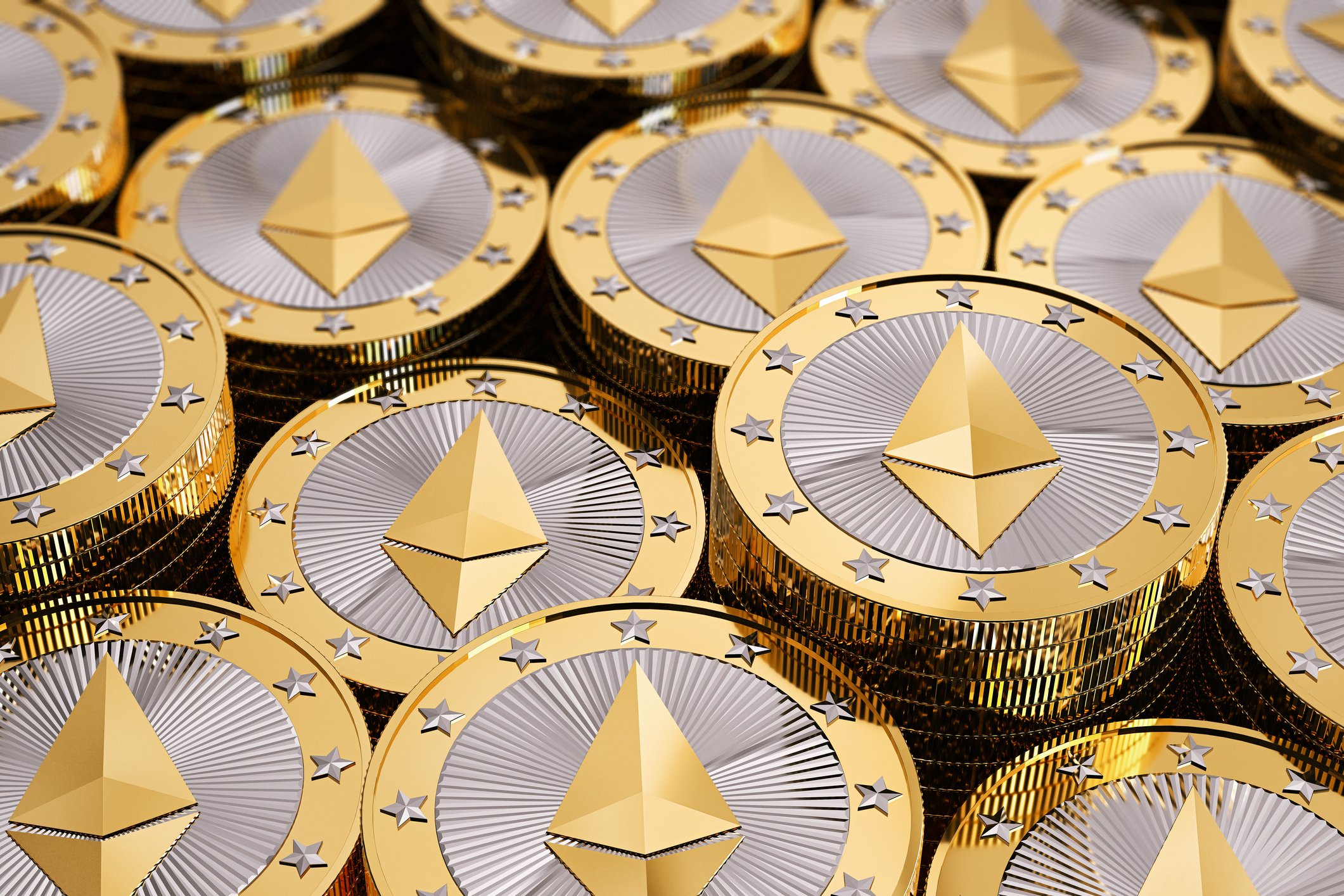Since its launch back in July 2015, Ethereum (ETH 5.38%) is up a mind-blowing 135,500%. Suffice it to say, if you had invested in Ethereum a decade ago, you'd likely be set up for life right now.
But does Ethereum still have the ability to create life-changing wealth? Let's take a closer look at the numbers.
Can Ethereum deliver an encore performance?
The two big years for Ethereum were 2020 and 2021. In 2020, Ethereum soared by 472%. And in 2021, Ethereum skyrocketed by 395%. But then came the crypto winter of 2022, when Ethereum lost 68% of its value and many patient long-term investors saw their crypto portfolios wiped out.

Image source: Getty Images.
So, for the purposes of understanding what Ethereum's real upside potential is, it's best to focus on the period starting from 2023. That's when the next big crypto bull market cycle started, and that's also when Ethereum started to post blistering growth rates once again. In 2023, Ethereum rose by 93%. In 2024, Ethereum increased in value by 46%.
Which brings us to 2025. Year to date, Ethereum is up 9%. That's not exactly the type of growth that Ethereum has posted in the past.
Is Ethereum still best-in-class?
The good news is that Ethereum is still the world's top Layer-1 blockchain platform. It has a dominant market share in nearly every key niche within the blockchain world, and many of the key innovations that have powered the growth of the crypto market -- such as smart contracts -- started with Ethereum. That gives it a clear first-mover advantage.
The bad news, however, is that Ethereum now has many more competitors than it did back in 2020-2021, when it was posting triple-digit percentage growth rates. For example, Solana (SOL 5.78%) launched in March 2020. Avalanche (AVAX 8.15%) launched in September 2020. Both now rank among the top 20 cryptocurrencies in the world by market cap.
And there are plenty more competitors throughout the list of the top 100 cryptocurrencies. These blockchains may be considerably smaller than Ethereum, but they are much more specialized. There's now a blockchain for artificial intelligence (AI) projects, for example. There's even a blockchain for meme coins.
So, it's easy to make the case that Ethereum's market share in every important blockchain niche is going to erode over time. There's simply too much competition. And, in some cases, these upstart blockchains have superior technology. Solana, for example, just showcased the ability to process 100,000 transactions per second. That's far faster than Ethereum, which still clocks in at 15 to 30 transactions per second.
A solid, but not spectacular, investment
Putting it all together, Ethereum is a solid, but not spectacular, crypto investment. It's easy to see how it could continue to post solid 20% growth rates during the next decade. That might help to build your wealth, but it's too much to say that it will set you up for life.

CRYPTO: ETH
Key Data Points
For the sake of argument, let's say that you invest $10,000 in Ethereum today. If Ethereum posts a compound annual growth rate (CAGR) of 20% during the next decade, that $10,000 will turn into about $60,000. That's a nice little profit, but likely not enough for you to quit your job and retire for life. At best, it might be enough money for you to take a break and travel the world for a year.
Future price predictions for Ethereum
At one time, it was possible to find price predictions for Ethereum well in excess of $10,000. But top investment firms now appear to be pulling back. Last year, for example, VanEck revised down its 2030 price target from $22,000 to $7,300. Given a current price of $3,628, that implies that Ethereum may be able to double in value between now and 2030, but it certainly won't be tripling or quadrupling in value.
The bigger lesson in all this is that historical performance is no guarantee of future results. Just because Ethereum is up 135,500% during the past decade does not mean that it will be up 135,500% during the next decade. If you're thinking about investing in Ethereum, that's important to keep in mind.







